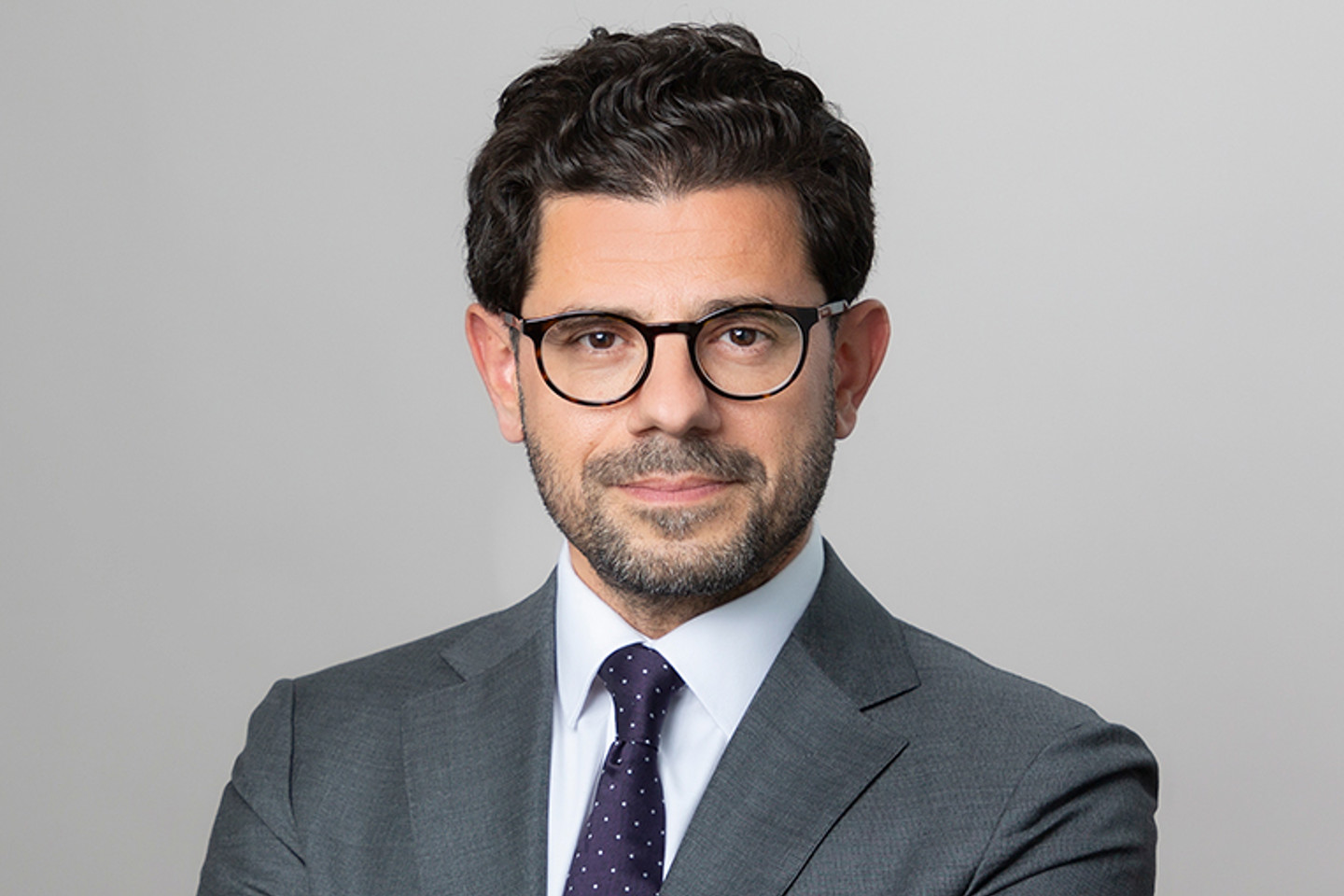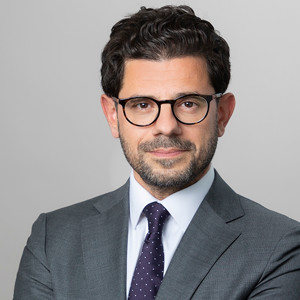
Bertrand Géradin
Partner | Legal
Luxembourg Legal Services

Bertrand Géradin
Partner
Luxembourg Legal Services
No Content Set
Exception:
Website.Models.ViewModels.Components.General.Banners.BannerComponentVm
Luxembourg today is one of the leading jurisdictions for the domiciling of international investment structures and 2012 confirmed its position as a first-ranking European domicile for international real estate investment vehicles. This premier-ranking has arisen as the result of a combination of macro factors favouring international investment and a pro-investment domestic framework.
This favourable domestic framework provides several types of competitive structures including both regulated and unregulated real estate investment vehicles.
In selecting the most appropriate vehicle, the choice will be influenced by a range of factors including the type of funding to be raised, the investors' specifics, tax considerations and the type of investments. The applicable, domestic Luxembourg taxation regime will also be the key driver when selecting a regulated versus an unregulated real estate vehicle.
This briefing summarises the key characteristics of unregulated real estate vehicles. Please refer to our separate briefing on regulated real estate vehicles in the Publications, Luxembourg Legal section of www.ogier.com.
The most important of the unregulated structures for structuring real estate transactions is the Luxembourg société de participations financières (Soparfi) which is a Luxembourg holding and finance company.
Soparfis' key elements are:
Corporate forms available
Although other corporate forms are available, below are the most commonly used legal forms:
All the above benefit from limited liability.
Investors
The Soparfi regime is available to both sophisticated and non-sophisticated investors. There are no restrictions in this respect.
Shares and debt instruments
The statutory minimum amount of share capital depends on the legal form. The SA and the SCA must have a minimum paid up share capital of EUR 31,000 whilst a SARL requires a minimum paid up share capital of EUR 12,500.
All companies may have a share capital expressed in Euro or in another foreign currency. However, adequate measures must be taken to cover any foreign exchange profits/losses as the tax returns must be filed in Euro.
Different classes of shares can be issued depending on the corporate form including ordinary shares, non-voting shares, preference shares, redeemable shares, management shares, founder shares, tracking shares and alphabet shares.
Bonds, convertible bonds, profit sharing instruments, warrants and hybrid instruments can also be issued.
Management and corporate governance
The management and supervision structure is different for each of the legal forms. Some corporate forms such as the SA and the SCA can opt for a one-tier or a two-tier management structure combined with internal or external supervision.
Management committees, advisory committees and managing directors may be appointed.
There are corporate governance rules for listed companies, however, private entities are not subject to formal corporate governance rules other than the standard corporate authorisations resulting from the Luxembourg company act of 15 August 1915, as amended (Company Act).
Soparfis are not regulated and have no obligation to entrust the custody of their assets with a depositary.
Shareholders' agreement
The flexibility of the Company Act is a strong asset when drafting shareholders' agreements. There are very few restrictions in relation to shareholders' arrangements for joint venture investment vehicles.
Business permit
A Soparfi does not require a business permit for its ordinary holding and group financing activities. However, in the event financial services are supplied that do not qualify for an exemption, a Soparfi may fall under the scope of the financial sector law of 5 April 1993 on the financial sector, as amended, and, therefore, may become subject to licensing and supervision of the Luxembourg financial regulator, the Commission de Surveillance du Secteur Financier.
General
Soparfis are subject to the generally applicable national corporate income tax at a rate of 22.47% (including a 7% surcharge for the unemployment fund) and municipal business tax at a rate of 6.75% (in Luxembourg-City). The combined corporate income tax (CIT) rate amounts to an aggregate applicable rate of 29.22% for companies established in Luxembourg-City.
A minimum lump sum tax up to EUR 3,000 (EUR 3,210 including the 7% unemployment surcharge) per annum applies to all Luxembourg companies having more than 90% of financial assets, which will be the case for most Soparfis. Even though the minimum tax is not a final taxation but an advance to the CIT due in the future, it will not be refundable.
Soparfis are further subject to a 0.5% annual net wealth tax which is levied on aggregate net operating assets (Unitary Value) as per 1 January of each financial year. The Unitary Value is the estimated fair market value of the company's assets minus its liabilities.
However, the combined effect of the technical points summarised below can provide for very substantial tax neutrality for Soparfis on international real estate investment vehicles meeting applicable eligibility criteria.
Soparfis incur payment of a lump sum of EUR 75 for registration duty upon incorporation.
Participation exemption
Providing certain eligibility conditions are met, a Soparfi can benefit from a full exemption from its taxable base for profit distributions received by it (including liquidation dividends) and capital gains realised in connection with its participation (ie investment) in other companies ultimately holding real estate investments. The principal eligibility conditions are as follows:
Operational business expenses including interest charges economically linked to a participation that generates eligible income, will only be tax deductible for the relevant fiscal year in respect of income received above the level of the exempt income (dividends) realised on such participations in that tax year. Expenses linked to tax exempt participations which have been deducted will be subject to recapture or claw back upon realisation of capital gains on such participations.
Investments qualifying for the participation exemption regime are also exempt from net wealth tax under the same eligibility conditions (as above) except that no minimum holding period is required. Debts related to assets exempt from net wealth tax are not deductible up to the value of the exempt assets.
Withholding tax
Dividends distributed by a Soparfi outside of liquidation are subject to a domestic withholding tax at a rate of 15%, unless a partial or full relief is available under a tax treaty or domestic law.
In principle, dividends on shares distributed to EU qualifying companies in connection with a qualifying participation held in the Luxembourg distributing subsidiary are fully exempt from withholding tax pursuant to Luxembourg domestic law implementing the EU Parent-Subsidiary Directive. The same applies to distributions made to parent companies which are resident in a tax treaty country and subject to a tax comparable to CIT in such country, in connection with qualifying participations. Reduced withholding tax rates are usually available under most tax treaties.
In contrast, payments of interest or yield on debt securities are not subject to any generally applicable Luxembourg withholding tax unless if paid to Luxembourg residents, or if subject to construction as a hidden dividend.
Interest paid to Luxembourg resident individuals is subject to a 10% withholding tax representing their final tax liability (i.e. final 10% withholding tax) if the interest is earned within the management of one's private wealth.
Exit
The distribution of liquidation proceeds or the proceeds of a partial liquidation (eg redemption of an entire class of shares) is not subject to withholding tax.
Thin capitalisation rules
Luxembourg tax law does not provide for formal thin capitalisation rules applicable to Soparfis.
However, the Luxembourg direct tax authorities have developed an administrative practice whereby a debt-equity ratio of 85/15 is considered as a safe harbour for the financing of fixed assets (including participations) held by a Soparfi, having as sole collateral the assets of the Soparfi. Debt financing in excess of the 85/15 ratio may still be acceptable where the aggregate interest charge does not exceed the at-arm's-length amount of interest accrued on the maximum principal loan amount allowed as per the abovementioned ratio. Interest in excess of this may be re-classified as a constructive or hidden dividend which would not be deductible for corporate tax purposes. In addition, such hidden dividend may be subject to the dividend withholding tax at the domestic rate of 15%, unless full or partial relief is available under Luxembourg domestic lax or a double tax treaty. Please seek specific advice in relation to the detailed market practice on this area current at the time of your enquiry.
Interest-free shareholder debt is considered as equity for the purposes of the debt-equity ratio and borrowings for on-lending purposes are disregarded for the computation of the above debt-equity ratio but may be subject to other minimum capitalization rules.

Bertrand Géradin
Partner | Legal
Luxembourg Legal Services

Bertrand Géradin
Partner
Luxembourg Legal Services

Laurent Thailly
Partner | Legal
Luxembourg Legal Services

Laurent Thailly
Partner
Luxembourg Legal Services

Jad Nader
Partner | Legal
Luxembourg Legal Services

Jad Nader
Partner
Luxembourg Legal Services
Ogier is a professional services firm with the knowledge and expertise to handle the most demanding and complex transactions and provide expert, efficient and cost-effective services to all our clients. We regularly win awards for the quality of our client service, our work and our people.
This client briefing has been prepared for clients and professional associates of Ogier. The information and expressions of opinion which it contains are not intended to be a comprehensive study or to provide legal advice and should not be treated as a substitute for specific advice concerning individual situations.
Regulatory information can be found under Legal Notice
Sign up to receive updates and newsletters from us.
Sign up
No Content Set
Exception:
Website.Models.ViewModels.Blocks.SiteBlocks.CookiePolicySiteBlockVm